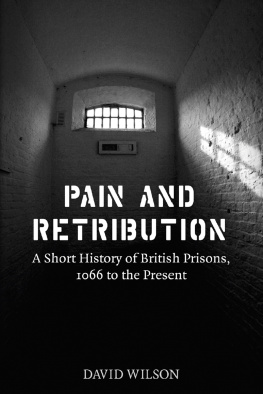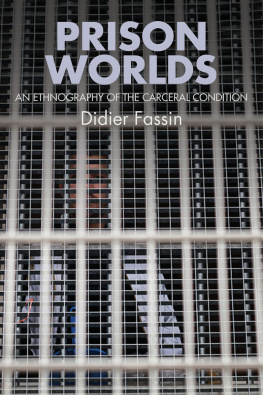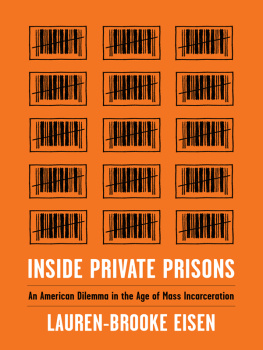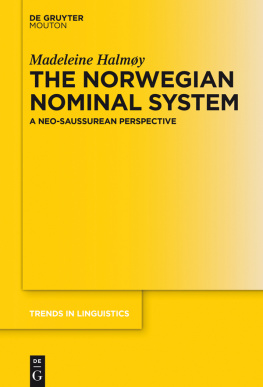Routledge Revivals
The Defences of the Weak
This is a sociological study of a Norwegian penal institution. The author spent two years in the institution, observing and interviewing inmates and staff, the target being to learn the extent to which American prisons fit with prison life in a different culture. He gives a fascinating answer to the question: Norwegian prisons were, at the time of the study, miles away from their American counterparts. The conflicts between prison officers and inmates were certainly there, but they took a very different form. Rather than engaging in deviant practices and norms, emphasising more or less solidary opposition against the staff, the Norwegian prisoners criticised the staff and the prison fiercely on the basis of their own norms; rather than engaging in deviance, they turned the common practises and norms of Norwegian society against the staff, engaging in a kind of moral surveillance of those in power. He coined the phrase of censoriousness to this approach from the bottom of the prison. Mathiesen spells out the major causes of this different approach, from characteristics of this particular prison to broader social forces.
The Defences of the Weak
A Sociological Study of a Norwegian Correctional Institution
Thomas Mathiesen
First published in 1965
by Tavistock Publications Limited
This edition first published in 2012 by Routledge
2 Park Square, Milton Park, Abingdon, Oxon, OX14 4RN
Simultaneously published in the USA and Canada
by Routledge
711 Third Avenue, New York, NY 10017
Routledge is an imprint of the Taylor & Francis Group, an informa business
1965 Tavistock Publications Limited
All rights reserved. No part of this book may be reprinted or reproduced or utilised in any form or by any electronic, mechanical, or other means, now known or hereafter invented, including photocopying and recording, or in any information storage or retrieval system, without permission in writing from the publishers.
Publishers Note
The publisher has gone to great lengths to ensure the quality of this reprint but points out that some imperfections in the original copies may be apparent.
Disclaimer
The publisher has made every effort to trace copyright holders and welcomes correspondence from those they have been unable to contact.
A Library of Congress record exists under ISBN: 66000723
ISBN 13: 978-0-415-53519-9 (hbk)
ISBN 13: 978-0-203-11283-0 (ebk)
The Defences of the Weak
A SOCIOLOGICAL STUDY OF A NORWEGIAN CORRECTIONAL INSTITUTION
THOMAS MATHIESEN
First published in 1965
in the International Library of Criminology
under the auspices of the Institute for the Study and
Treatment of Delinquency
by Tavistock Publications Limited
11 New Fetter Lane, London E.C.4
SBN 422 71530 1
First published as a Social Science Paperback in 1972
SBN 422 75380 7
Printed in Great Britain by photolithography
by Cox and Wyman Ltd
London, Fakenham and Reading
Copyright Thomas Mathiesen, 1965
This book is available in both hardbound and paperback editions. The paperback edition is sold subject to the condition that it shall not, by way of trade or otherwise, be lent, re-sold, hired out, or otherwise circulated without the publishers prior consent in any form of binding or cover other than that in which it is published and without a similar condition including this condition being imposed on the subsequent purchaser.
Distributed in the U.S.A. by
Barnes & Noble Inc.
Contents
Preface
This book reports on a sociological study of aspects of a Norwegian correctional institution.
When conducting a study of a correctional institution, it is tempting to introduce ones own value judgements about such organizations. However, I have tried my utmost to resist the temptation. The aims of the book are description and theoretical analysis, and when describing and interpreting I have faithfully tried to set aside any personal bias.
However, personal bias may, of course, still have crept in without my wish or knowledge. This possibility, which indeed is present in almost any sociological study, indicates that it is my duty to tell my readers very briefly what my biases are in so far as I am aware of them myself. For by having these biases identified, the individual reader should be better able to judge the success of my attempts at keeping description and analysis free of them.
I have to state that prisons in their present form are not, in my opinion, efficient means of bringing deviants back to normal societal life. Aspects of the social structure of prisons seem to me to be detrimental to rehabilitation, at least in many cases. If institutional treatment of criminals is to be effective, drastic reorganizations seem to me to be necessary. In this connection, introduction of a professional treatment staff on a far broader scale than heretofore seems of the greatest importance.
But my personal attitude towards prisons is not only guided by the criterion of efficiency. I have to state also that in many cases I find imprisonment unjust, in the sense that I find the penalty unnecessarily hard in relation to the offence. In other words, I often do not find a criminal offence important or dangerous enough to warrant mobilization of all the deprivations of imprisonment. This does not mean that I blame staff members, whose situation can be almost as difficult as that of the inmates. Rather, the physical and social structure of many prisons, beyond the control of the individual staff member, seems to me often to impose unnecessary hardships.
However, once this is said, I should also add that this feeling on my part varies according to the actual institution I have in mind. I should perhaps stress that in terms of internal institutional arrangements, I gained this feeling less in the institution I studied than when observing other institutions. The reason is probably that the institution I studied was characterized by medium rather than maximum security at the time of the study.
Many people and organizations have been most helpful in making my work possible, though I, of course, must bear sole responsibility for any shortcomings evident in the book. In a brief preface it is unfortunately impossible to mention all who helped me. However, I am concerned to express my gratitude to at least some of those who have given me help. I should like to mention:
The Prison Board of the Ministry of Justice for permission to carry out the study, and the staff and inmates in the Ila Institution for Preventive Detention for their co-operation and great helpfulness. For obvious reasons inmates cannot be mentioned by name, and space forbids mentioning all of the staff members. But I would at least like to express my sincere gratitude to Mr Bergsvein Hov, Superintendent; Dr Nils Kinnerd, Chief Psychiatrist; Dr Aagot Heyerdahl, at present Chief Psychiatrist in Botsfengslet; Mr Sverre Bakken, former Inspector; Mr Rolf Myrvold, Inspector; and Mr Arvid Husborn.
Colleagues at the Institute for Social Research, and at the Institute for Sociology of Law and Public Administration at the University of Oslo. I am indebted to Professor Hans Toch (Michigan State University), Fulbright Research Fellow at the University of Oslo 19634, for his great help in reading and criticizing an early draft of the manuscript, and for innumerable discussions. Furthermore, I am indebted to Professor Vilhelm Aubert; Professor Torstein Eckhoff; Professor Sverre Lysgaard; Professor Knut Dahl Jacobsen; Mr Ulf Torgersen, University Fellow; Mrs Siri Naess, Research Assistant; and Mr Karl Tangen, for many discussions. I am very happy to be able to express my gratitude to them here.










